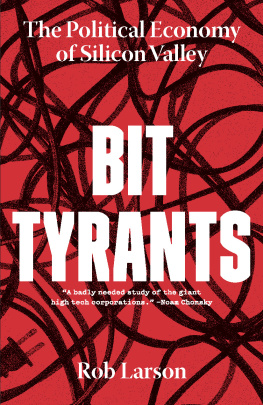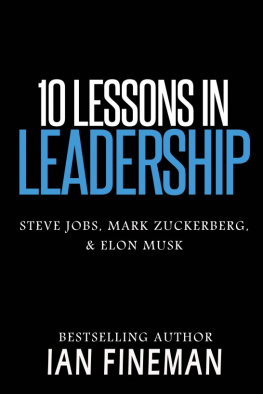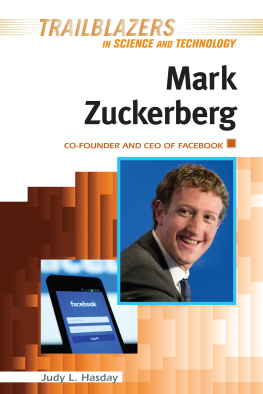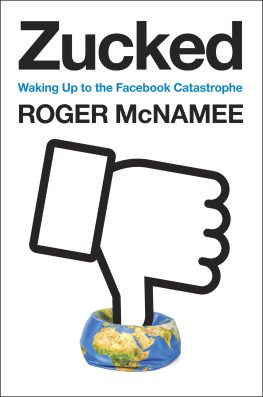
Load Screen
Let me start by saying I use all these corporations services constantly. This book was written on Apple devices, using Microsoft Word software, employing an enormous number of Google searches, with some of the research material purchased from Amazon affiliates. And I will irritate my friends by promoting it on Facebook.
So Im not pretending to be above using these services. Indeed, I probably couldnt have written this book without them. And thats the pointits not just me.
In 2017 the world was on the edge of global confrontation over the clusterfuck of a chess game that was the Syrian Civil War, and a number of times the United States and Russia came dangerously close to a full confrontation, which could have gone all the way to nuclear conflict. Preventing that scenario is the hotline system, maintained by the two countries military bases in the region, which allows both sides to inform one another of their flight paths and attack plans, so that the air forces dont accidentally target one another or risk an unintentional near-collision. A mainstay in US-Russia relations since the Cold War era, the hotline is a pawn in disputes between the countries, but rarely is it actually deactivated.
It was reported at the time that a backup exists to the conventional phone-based hotline. It is a declassified Gmail account.
This book is not about whether the towering corporate empires of Silicon Valley make useful productsfew people would try to deny that. Its about the fact that I have little choice but to rely on these huge firms in order to carry out a project like producing a book, much like the American and Russian air forces in running a war. Our economy now largely relies on these tech companies, giving them incredible power. Its not the first time capitalism has evolved a new ruling core of networked companies that eventually dominate the entire system, but it may wreak the deepest changes yet.
And exploring these new, powerful institutions of capital is the purpose of this book.

2020 Rob Larson
Published in 2020 by
Haymarket Books
P.O. Box 180165
Chicago, IL 60618
773-583-7884 www.haymarketbooks.org
ISBN: 978-1-64259-087-6
Distributed to the trade in the US through Consortium Book Sales and Distribution (www.cbsd.com) and internationally through Ingram Publisher Services International (www.ingramcontent.com).
This book was published with the generous support of Lannan Foundation and Wallace Action Fund.
Special discounts are available for bulk purchases by organizations and institutions. Please call 773-583-7884 or email for more information.
Cover design by Matt Avery.
Library of Congress Cataloging-in-Publication data is available.

INTRODUCTION
Bitatorship
What this book is for
It might seem weird that so many people are turning against Big Tech. After all, we spend much of the day on our phones, log long hours on Facebook and YouTube, and for many years the great innovators of Silicon Valley and its CEOs have been toasted on TV and praised by presidents. Apple CEO Steve Jobs became a global icon of the visionary genius, even becoming a basis for the Iron Man movies. Barack Obama was extremely close to the industry, and especially to Google, with 250 people moving between his administration and the company.
Many liberal and conservative figures have celebrated the tech industrys fun and useful new services, often available for free, and for decades praised the disruptive instincts of Silicon Valley. Libertarian economist Tyler Cowen, for example, writes that the tech companies have placed so much of the worlds information at our fingertips, and more often than not it is accessible within minutes There are whole books of this shallow, religious ball-fondling.
But despite this bottomless ocean of mainstream ass-kissery, the reality is that Big Tech towers over us and has incredible influence over our lives. So much of our daily work, commerce, and socializing happens on their systems or relies on their data. All the feverish worship of Innovation cant hide the fact that the technology companies have largely taken over the economy, hoarded our data, played dirty to crush challengers, and utterly reshaped our lives to their advantage. The companies are typically run by bullying tyrant CEOs, who abuse their corporate subordinates and have structured their companies so as to maintain their sole power over major decisions. No vision for fundamentally changing our society can succeed without seriously thinking about how to deal with todays tech companies, which have arguably become the central industry in capitalism altogether. And all using technology the bastards didnt even invent!
Holding a magnifying glass up to the monumental tech corporations is the purpose of this book, and it wont conform to the conventional picture of Big Tech as friendly giants with free softwarea picture thats finally wearing thin anyway. I wash my brains of it! Well be looking head-on at the different forms of stupefying, world-changing power wielded by todays biggest corporate titans over the man in the street.
And you dont have to take my work for it. Consider a little-noticed report in the conservative Wall Street Journal, titled Giants Tighten Grip on Internet Economy, focusing on the major tech corporations, which were represented in the articles art design as a huge flying saucer covered in corporate logos, apparently beaming people aboard.both fuel and extract value from the rising digital economy.
The centrality of these firms to the functioning of the Internet means whole ecosystems of users are gradually built around these corporate nodes, so that anyone building a brand, for example, cant ignore Facebooks highly engaged daily audience of 1 billion. Anyone starting a business needs to make sure they can be found on Google. Anyone with goods to sell wants Amazon to carry them. And the same goes for mobile apps (dominated by Google and Apples stores) and video (Googles YouTube).
As of this writing, the five biggest companies in the world by market value are Microsoft, Amazon, Apple, Google, and Facebook. Its very unusual for the worlds five biggest corporations to all lie in a single sector of the economy. It reflects the fact that the technology markets are especially prone toward winner-take-all outcomes.
The short version is that the tech sector is especially monopolyprone because of an economic phenomenon called network effects. Network effects occur when the value of a good or service increases as more people use itlike a telephone. As more people joined the early phone network, the value of a telephone in your house grew, since you could potentially call more people and businesses with it. The same principle applies to other markets that operate on networks, like web search engines and social media.
Network effects tend to create monopolies because the first one or two companies to gain a large mass of users tend to attract more userssuccess breeds success in network markets. This means that early market leaders tend to become almost magnetically irresistible and grow extremely quickly as the network gains value from more users, leading to yet more users. This economic process tends to leave a single hugely dominant company, like YouTube, with gigantic user numbers due to the overwhelming attractiveness of a network that has everyone on it. This kind of dominance, where users are attracted
Next page











